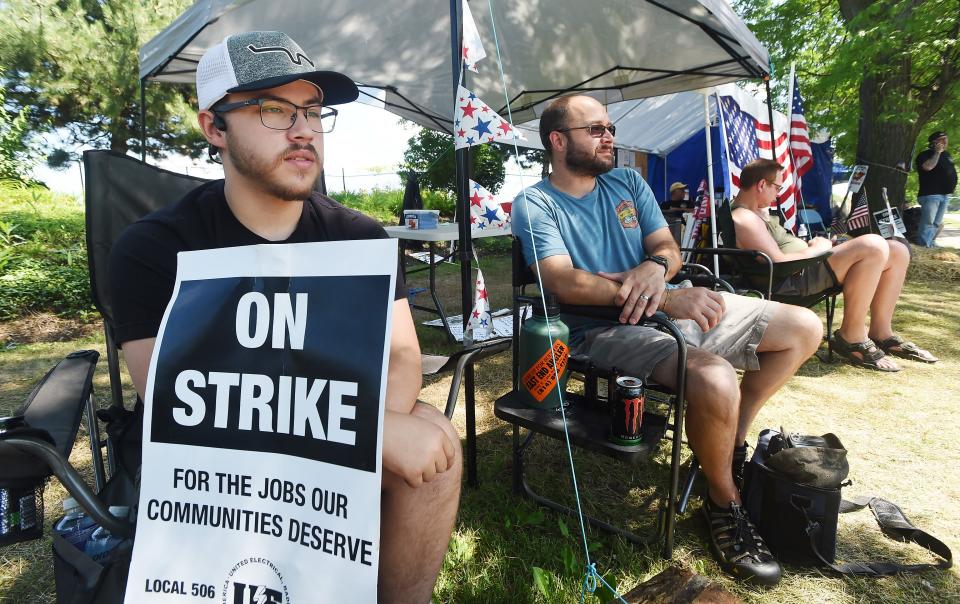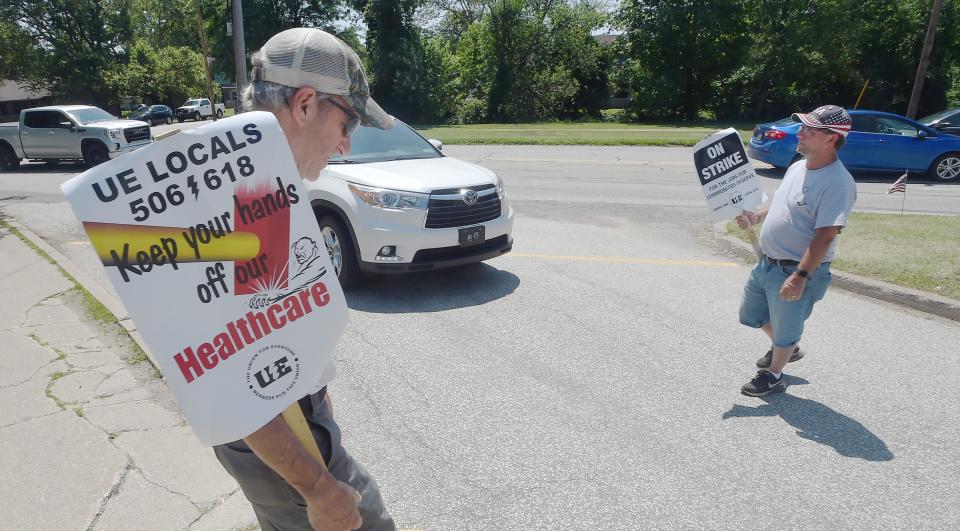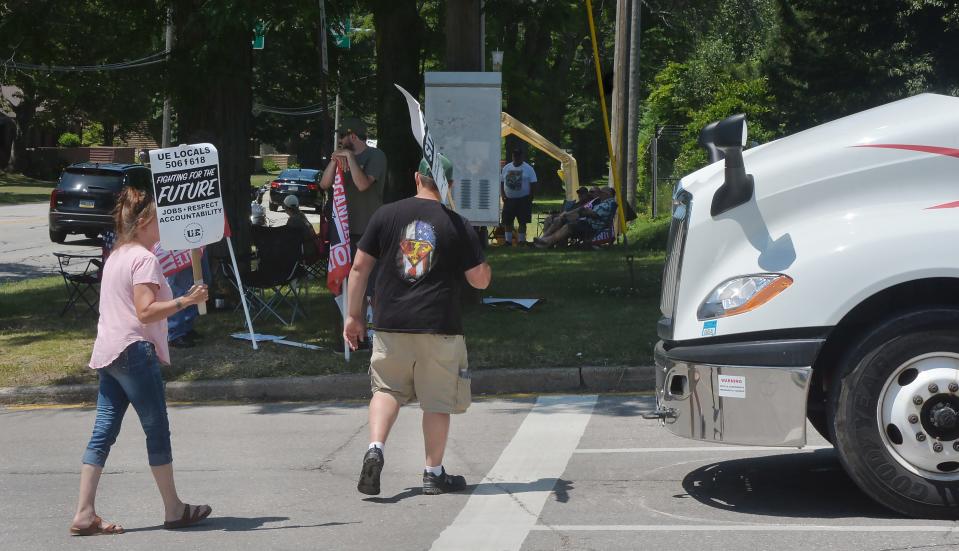Negotiations resume as UE strike at Wabtec reaches two-week mark in Erie
On Thursday, as the United Electrical, Radio and Machine Workers of America strike at Wabtec Corp. hits the two-week mark, the parties are scheduled to return to the bargaining table for the first time in nearly a month.
More than 1,400 workers from union locals 506 and 618 have been on strike since June 23 when members voted to reject the company's most recent offer.

This is the second time the UE has struck Erie's locomotive plant in the little more than four years since Pittsburgh-based Wabtec purchased the former GE Transportation. That first strike happened almost immediately after the sale was finalized in February 2019.

At 14 days, the current strike is already five days longer than the nine-day strike in 2019 that was touted as the nation's largest industrial strike in several years.
Prior to 2019, the last extended work stoppage at the Erie plant was in 1969 when 150,000 GE workers, including thousands in Erie, participated in a nationwide strike that continued for 102 days.
Public support
Support for the current strike has come from a wide range of sources, including hundreds of passing cars and trucks that blast their horns at the picketing workers each day.
State Rep. Jake Banta visited striking workers at several gates on Tuesday. The previous Saturday, graduate workers from newly formed UE locals at Johns Hopkins University, the University of Chicago and Northwestern University were on hand to observe.
In addition to support from other unions, written support came from the Benedictine Sisters of Erie. They wrote: "As Benedictine Sisters, we stand with workers. Catholic social teaching is clear that workers should be assured the right to strike."
Jim Wertz, the chairman of Erie's Democratic party, is inclined to agree.
Wertz, who walked the picket line Saturday, said he doesn't accept the argument that a strike puts Erie in a bad light.
"I don't think people asking for what they are due should put anyone in a bad light," he said. "I think what puts Erie in a much darker light is a business community that constantly undervalues the labor that is created and the product it sells."
Wertz said workers on the picket lines seemed to be upbeat.
"Spirits were high on Saturday," he said "I think all those folks would prefer to be back at work. It seems to me that they are committed. I think you are going to see more and more groups that have concerns moving to the labor movement."
A long list of differences divided Wabtec and the union workforce. High on that list were different views about general wage increases and a progressive wage scale for new workers. The union had hoped to eliminate that progressive wage scale or to reduce the progression from 10 years to 2.
Wertz said he can understand why the progressive wage scale, introduced in 2019, might seem unpalatable given high levels of inflation and the high-skilled nature of the work.
"You wouldn't expect an M.D. or a lawyer to work for $20 an hour," he said.
What impression does Erie make?
James Grunke, CEO of the Erie Regional Chamber and Growth Partnership, said he's hopeful to see the two parties return to the bargaining table with the assistance of a federal mediator.

"We want to be a welcoming business-friendly community that supports all family-sustaining jobs," he said.
But Grunke said the chamber does worry about the disruptive nature of a strike and how that might shade public perceptions of Erie.
"We look at it in economic development terms," Grunke said. "When it comes to relocating or maybe coming to a new community, they (companies considering relocation) are monitoring the news months in advance. Anytime there is something that can be viewed as slightly negative, we are always concerned."
Grunke stressed that the chamber isn't at odds with the needs of the union.
"As always we are not pro-company or pro-union," Grunke said. "We are pro people working in our community at good jobs. We think Wabtec provides really good jobs. We want them to look at Erie for future investment and expansion."
More: Union members at Wabtec to walk picket lines; members voted Thursday to reject offer
More: Resolving to do better: Penn State Behrend initiative to bolster industry and environment
Contact Jim Martin at jmartin@timesnews.com.
This article originally appeared on Erie Times-News: UE members in Erie remain on picket line at Wabtec as talks resume

